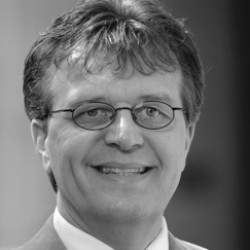In a startling statement, German theologian Jürgen Moltmann claims that only those people are capable of dialogue—or “merit” dialogue, as he puts it—who “have arrived at a firm standpoint in their own religion, and who enter into dialogue with the resulting self-confidence.”1 Many Christians have a different understanding of what dialogue means, either with other Christians or with followers of other living faiths. It is often assumed that dialogue means nothing more than mutually agreed compromise, an attempt to be so nice as to hide one’s own convictions.
That kind of compromised dialogue would not only not be interesting—why waste time in playing nice when everybody knows that real issues are not being touched on?—but also counterproductive. It would hinder us from really getting to know the Other and learning from the Other, and vice versa. Thus, Moltmann continues, “it is only if we are at home in our own religion that we shall be able to encounter the religion of someone else. The person who falls victim to the relativism of the multicultural society may be capable of dialogue, but that person does not merit dialogue.”2
When Catholics and Lutherans or Methodists and Pentecostals talk to one other, they want to talk to a real representative of the other church. When a Buddhist and a Christian converse, they are not talking to another religion but to a man or woman who takes religion seriously—be that a neighbor or coworker or student-colleague.
Dialogue rightly understood is about truth. It is about deepest convictions and values. Between Christians from different traditions it is about how to understand an alternative formulation of the shared truth in Christ. Between followers of different faiths it is about what—or in Christian understanding, who—is the truth. In that kind of encounter, dialogue is a two-way street with giving and taking, talking and listening. Dialogue where ears are as important as mouth.
Evangelicals are better known as talkers. They are eager to share about what they have found. Evangelicals don’t always make good listeners or good learners. We need both.
This issue of Theology, News & Notes looks at the various and diverse dialogical encounters that Fuller is engaged in as an institution. We participate in a number of ecumenical encounters with other Christian churches as well as conversations with other religious communities.
The importance of Fuller’s dialogues go beyond our own institution. As President Richard J. Mouw puts it, Fuller has “convening power” as one of the world’s largest and most diverse divinity schools, where activities and opinions are observed by Evangelicals as well as other churches. If Fuller doesn’t talk to the Other, that makes a big statement!
The lead essay is written by Fuller’s president, Richard J. Mouw. He takes stock of some of the most important institutionally driven dialogues and develops theological guidelines for dialogues, whether ecumenical or interfaith. The Evangelical grand old man of Muslim studies, Professor Dudley Woodberry, helps put the Muslim-Christian dialogue in a proper perspective in his essay. Dr. Marèque Steele-Ireland, an adjunct assistant professor of theology, develops key theological insights into the theology of dialogue. Trained in both systematic theology and world religions, she is uniquely skilled in helping us reflect more intentionally on the complexities of encountering the Other. Dr. Cecil M. Robeck Jr., professor of church history and ecumenics and undoubtedly the most experienced and well-known Evangelical ecumenist at the international level, focuses on ecumenical dialogues and their rationale in the life of this institution.
Two Fuller students, recent alumna Carrie Graham and current doctoral student Cory Willson, share about their encounters with people of other faiths and reflect on the implications for their ministry and life. Two invited guests, David Neff of Christianity Today and Fr. Thomas P. Rausch of Loyola Marymount (Los Angeles), offer insights on dialogue with regard to Evangelical-Jewish and Evangelical-Roman Catholic encounters. Both of these seasoned observers and agents in various kinds of such dialogues make good mentors and sources of inspiration.
My own contribution is an essay that was invited by the Edinburgh 2010 World Missionary Conference preparatory process as part of the study program “Mission and Other Faiths.”
ENDNOTES
1. Jürgen Moltmann, Experiences in Theology: Ways and Forms of Christian Theology, trans. Margaret Kohl (Minneapolis: Fortress, 2000), 18.
2. Ibid., 18–19.
This article was published in Theology, News & Notes, Fall 2010, “Fuller in Dialogue: Engaging the ‘Other’ with Civility.”

